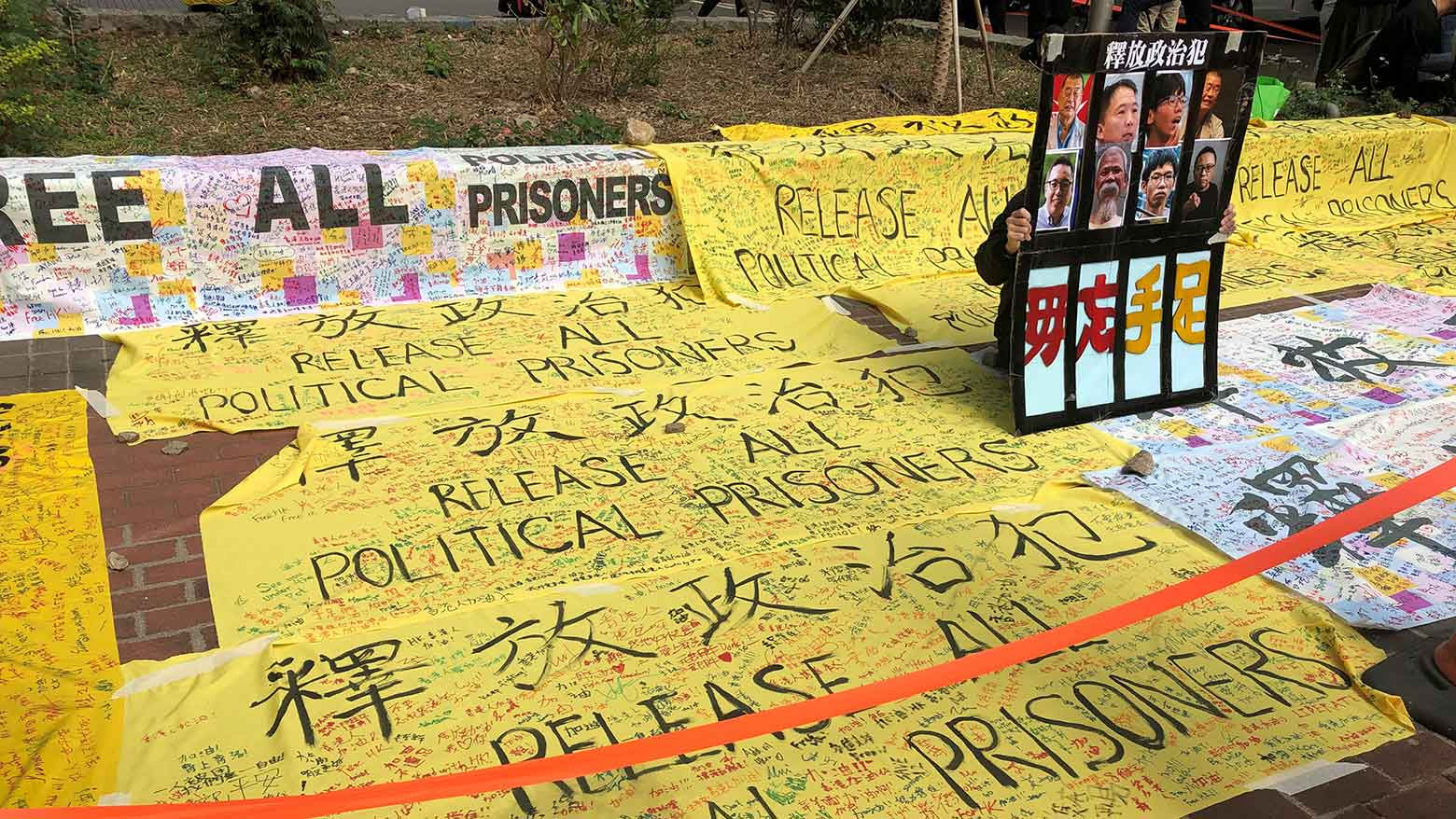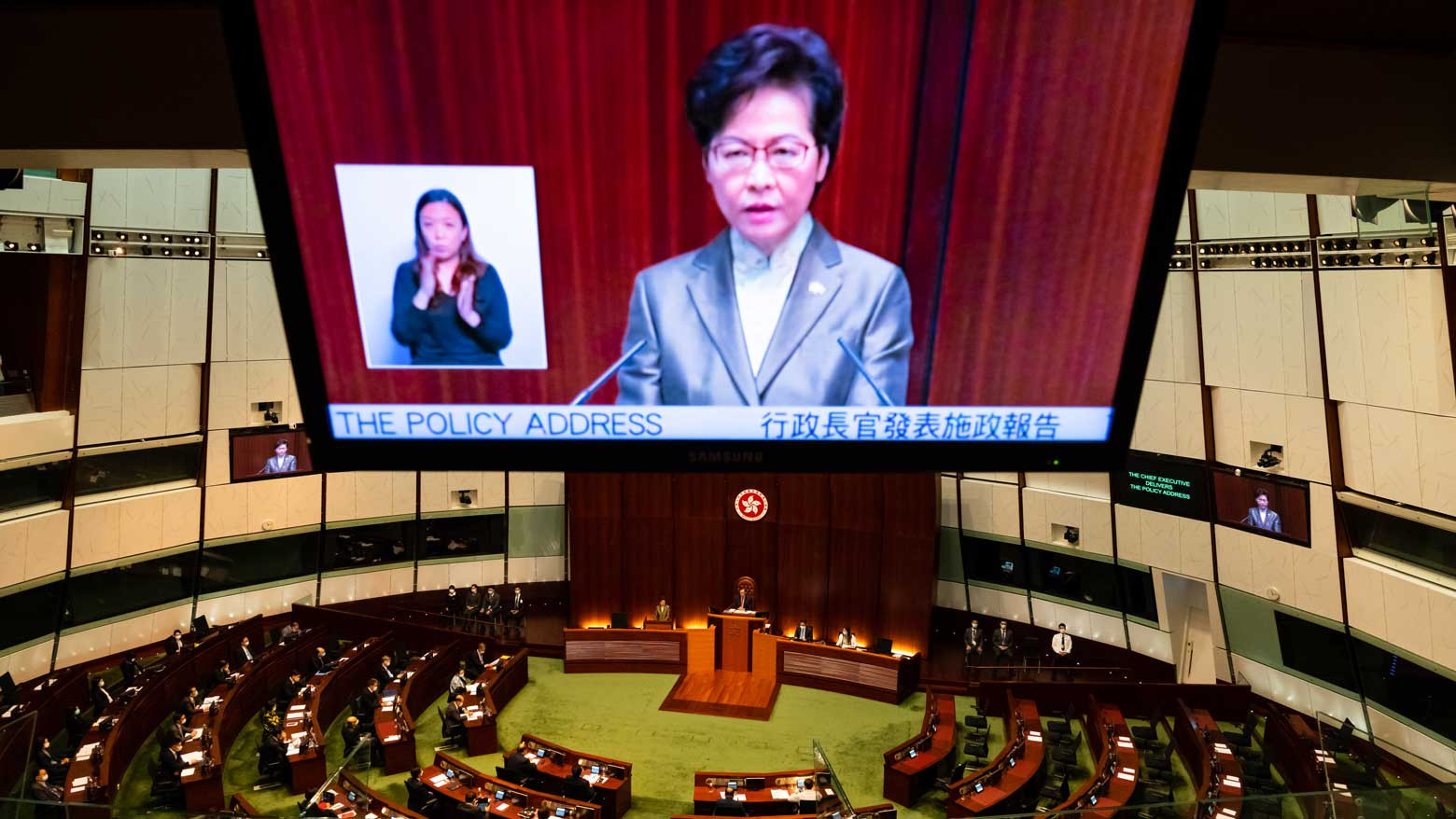The defendants, including politicians, have been key players in Hong Kong's democratic movement. All were involved in unofficial Legislative Council primaries last July. Prosecutors say they “attempted to overthrow the national government.”
The trials began at the West Kowloon Magistrates’ Courts on March 1. Speaking to reporters before the trials, some remained as defiant as ever.
Pro-democracy activist Ventus Lau said: “I have anxieties and fears, but many of our peers have also been detained. Authorities may intend to put an end to Hong Kong’s democratic movement by sending us to jail, but our citizens will prove them wrong.”
Fergus Leung, a district council member, said, “Everything I did is because I care about Hong Kong. I have no regrets.”
Former Legislative Council member Kwok Ka-ki said: “I'm saddened by the continued loss of freedom and democracy. I just hope everyone won’t give in to fear and won’t give up.”
Benny Tai bears the brunt
Benny Tai was in court as “defendant number-one.” He was fired from his position as an associate professor at Hong Kong University last July after organizing the unofficial primary election.
He knew a majority win for the pro-democracy camp would have been difficult under an election system designed to favor the pro-Beijing side. Still, he decided he had to take the chance when the movement to which he belongs was gaining momentum.
Last April, he told NHK that his aim was to put political pressure on the Chinese government. “If we can win the game controlled by the opponent, we will be able to accelerate democratic reform by using the power given to the Legislative Council.”
As many as 610,000 citizens voted in the unofficial primaries – far exceeding Benny’s expectations. He described the turnout as “a miracle.”
Regardless, the actual Legislative Council election scheduled for September was postponed for a whole year. Officials cited a resurgence of coronavirus cases.
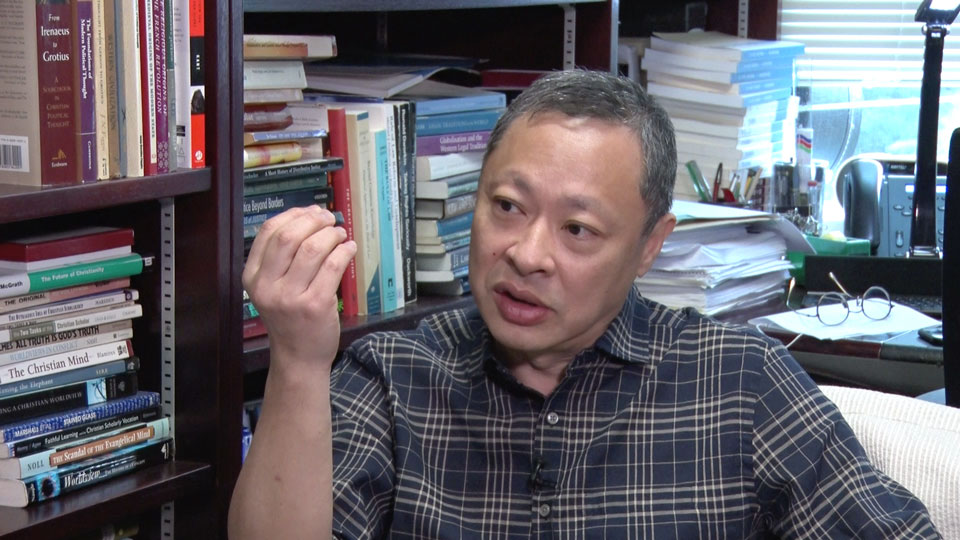
A ‘formidable opponent’
News reporter Gwyneth Ho is another defendant. Speaking to NHK last July, she explained why she decided to run in the unofficial primaries: “I felt our freedom of speech was being threatened. So, I decided to serve as the voice for Hong Kong people.”
When Ho spoke to NHK, she compared her situation to Sanada Yukimura, a samurai warrior who came up against Tokugawa Ieyasu, a formidable enemy and the founder of the Tokugawa Shogunate. “Sanada chose to fight for his cause until the end. If the people of Hong Kong still believe democracy and freedom are worth fighting for, the Communist Party’s crackdown will never be a reason for giving up.”
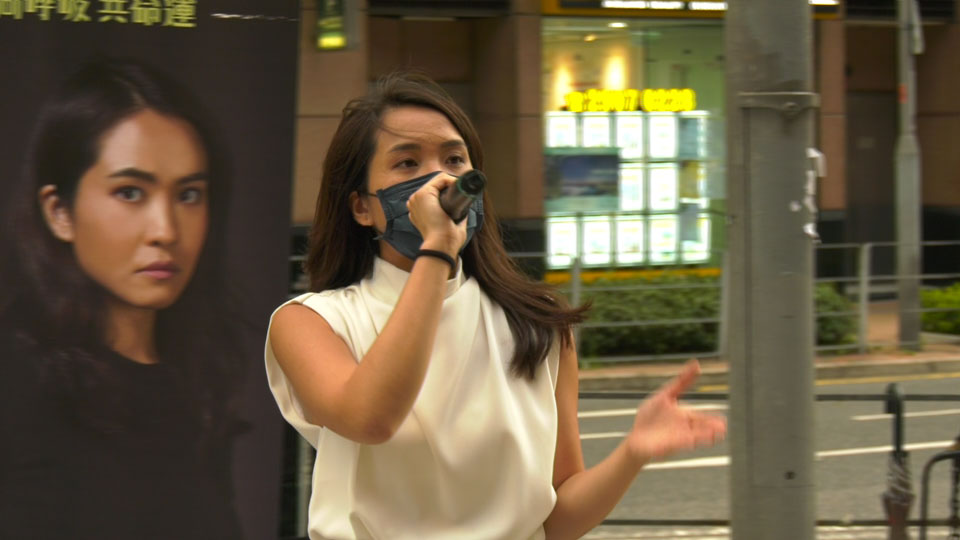
The desperate fight for bail
Right at the outset of the trial, the prosecutors caused a stir by saying they need another three months to gather more evidence for the charges. They requested the next hearing be held on May 31, and that the defendants should remain in custody. Some observers wondered if the activists had already been charged.
All 47 protested and applied for bail. Their chances were slim at best, given that it had never been granted to anybody charged with violating the national security law. Bail in Hong Kong is typically granted relatively easily based on the presumption of innocence. But the Supreme Court clarified its position last year, stating that cases regarding the security law should be judged more strictly.
The defendants’ pleas continued for hours, with few breaks. On the first day, the hearing continued past 1 a.m. and one of the defendants became sick and collapsed.
Muffled voices of support
On the fourth day of the trial, the court granted bail for 15 defendants with unprecedented conditions. In addition to the conditions of bail payment and appearing before police three or four times a week, the defendants were prohibited from “taking part in elections” and “contacting personnel of foreign governments.” But the prosecutors promptly objected. In response, the judge said the 15 defendants will be held in custody until the case goes to a higher court.
Citizens angered by the court’s decision started calling for the release of political offenders. Hundreds of people started gathering at the court every day, but their voices have been silenced by a police crackdown.
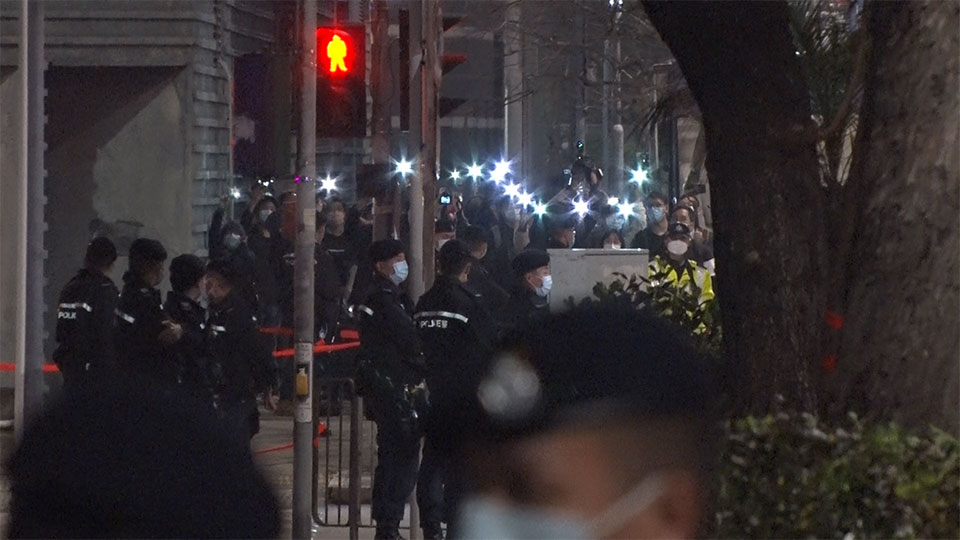
https://www3.nhk.or.jp/nhkworld/en/news/ataglance/1318/
The police also blocked the streets around the court to prevent people from voicing support to the defendants riding in prisoner transport vehicles. One citizen, urged by the authorities to leave, poignantly said, “Hong Kong was never like this.”
Eleven defendants have since been released on bail after prosecutors dropped charges or the high court granted bail. But dozens remain in custody.
The focus of the trial now shifts to determining whether the organizing of the primaries constituted a conspiracy to commit subversion. The fate of the 47 pro-democracy activists remains unclear, but their chances of walking free anytime soon appear slim.
